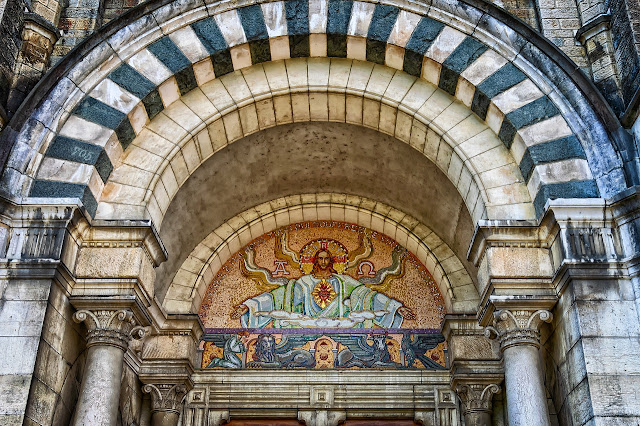The Biggest Way That People Misunderstand God's Omnipotence
It is a well-established fact that we currently live in a post-Christian culture. While it is important to make a distinction between a post-Christian culture and an anti-Christian culture, that discussion will have to wait for another post. For now, it is important to note that one major aspect of a post-Christian culture is that the Church, as well as the theological understandings that they hold, no longer have a place on the radar of many, if not most, people in our culture. It should not surprise us, then, when people begin to misunderstand the theological stances that have been held by the Church for centuries. While various theological positions are misunderstood, some are more misunderstood than others. Perhaps one of the most misunderstood aspects of traditional theology that is misunderstood is the concept of God's omnipotence. It is to this topic that we turn in this post.
The Common Conception
When we talk about God's omnipotence with those who have not been trained in theology, the most common understanding that I run across can be summarized in the following sentence: "God's omnipotence means that God can do anything at all." On the surface, this seems like a good definition. However, there are two problems with this definition. First, this definition entails some difficulties that have often been exploited by those who argue against the Christian faith. Second, historically speaking, this is not how many of the church fathers would have defined omnipotence. Indeed, it seems that this definition may have arisen as a means of simplifying the theological concept of God's omnipotence that has been held by the church for centuries. In simplifying our understanding, however, we have opened ourselves up to critique.
If omnipotence simply means that God can do anything at all, it entails that God is able to do contradictory things. "Anything at all," would seem to imply that, when it comes to creation, God could have created things like square circles or married bachelors. It would mean that he could create a rock so large that he himself could not lift it. It would mean that he could both create and not create at the same time. Each of these leads to a contradiction, which is why such a definition would have been refined by our theological ancestors.
It would also seem to imply that God could do things that are contrary to his nature. For example, if God can do anything, then this logically entails that God could do evil, which we understand to be contrary to his nature. In short, when we understand omnipotence to be that attribute which enables God to do anything at all, what we end up with is a definition that is logically incompatible with the traditional understanding of God's goodness.
A Better Definition
A better understanding of God's omnipotence, and one that is grounded in the historical Christian faith, is that God is able to do anything that is neither self-contradictory nor contrary to his own nature. This is the point that Thomas Oden is making when he writes of God's omnipotence. He writes,
"Omnipotence may be defined as the perfect ability of God to do all things that are consistent with the divine character. God can do all that God wills to do...........God is not limited in any of the divine attributes by anything external to himself. No power in history has any other empowering source ultimately than God."1
The point that Oden is making here is that God's omnipotence entails that God is able to do anything that is consistent with his nature. Thus, God does not do evil, since evil is inconsistent with omnibenevolence. God cannot do what is logically contradictory, since God himself is logically consistent. Oden also cites multiple church fathers who expressed this understanding, including Athanasius, Augustine, and Hilary of Poitiers. Thus, the understanding of omnipotence that is expressed by Oden is not a new expression, nor is it one that is contrary to what the church has taught for the entirety of its existence. Rather, this understanding is an old one that we need to understand better in the church today.
1 Thomas Oden, "Classic Christianity," p.51↩
___________________________________________________________________________________
If you enjoyed this post, you may also enjoy these:
The Trinity And Maximal Greatness
Why I Believe In God (But Not In Unicorns)
--------------------------------------------------
If this article has spoken to you, or if you’re ready to follow Jesus, we’d love to walk with you. Click the button below to let us know about your decision. It would be our honor to walk with you as you begin your new life in Christ.

.png)


.png)

Comments
Post a Comment